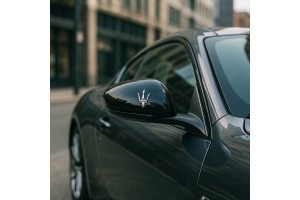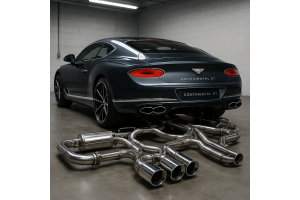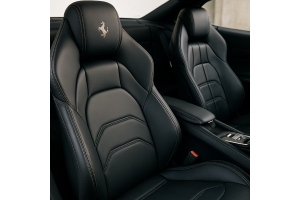Top 20 Things to Be Aware of When Buying Used Car Parts for Luxury Cars
Purchasing used car parts for luxury vehicles can be a cost-effective solution, but it comes with a unique set of challenges. High-end vehicles often require specific components that are both intricate and expensive. Whether you're restoring a classic, repairing an accident-damaged car, or upgrading a recent model, being informed is critical to avoid costly mistakes. Here are 20 important factors to keep in mind before buying used luxury car parts:
1. Verify Compatibility
Luxury vehicles are often designed with proprietary systems and unique configurations. Always check the part number and confirm compatibility with your car’s VIN (Vehicle Identification Number).
2. Source from Reputable Dealers
Only buy from trusted salvage yards, certified resellers, or well-reviewed online platforms to avoid counterfeit or low-quality parts.
3. Inspect for Damage or Excessive Wear
Look for cracks, rust, or excessive wear. Some used parts may appear intact but could be compromised structurally.
4. Request Documentation
Ask for the service history, part provenance, and whether the component was tested or reconditioned.
5. Understand Return Policies
Make sure there’s a clear return or exchange policy in case the part doesn't fit or function as expected.
6. Beware of Airbag and Safety Components
Many experts recommend avoiding used airbags, seatbelt components, or other safety-critical parts due to potential reliability issues.
7. OEM vs. Aftermarket
Prioritize OEM (Original Equipment Manufacturer) parts over aftermarket alternatives for best fit and function in luxury vehicles.
8. Ask About Mileage
Parts like engines or transmissions should come with details on the mileage they’ve been through to assess remaining life expectancy.
9. Test Before Purchase
If possible, test the part on-site or request video proof of functionality, especially for electronics.
10. Check for Recalls
Search the part number in national recall databases to ensure it’s not part of a manufacturer defect list.
11. Factor in Shipping Costs
Heavy or oversized luxury parts can incur significant shipping fees—factor these into your total cost.
12. Use a Mechanic or Specialist
Consult with a technician who specializes in your brand for advice and potentially installation.
13. Check for Tampering
Ensure serial numbers or security tags haven't been removed or altered, as this may indicate stolen goods.
14. Don't Ignore Aesthetics
Luxury cars often require parts that match in color, trim, or finish—especially for exterior or interior elements.
15. Be Cautious with Electronics
Modern luxury cars use complex ECUs, sensors, and modules. Used electronics may not be reprogrammable or compatible.
16. Understand Market Value
Research the average price for the part. If the deal sounds too good to be true, it probably is.
17. Confirm Warranty
Some resellers offer limited warranties even on used parts. This can offer added peace of mind.
18. Get a Professional Opinion
If you're unsure, a professional inspection can save you from an expensive mistake down the line.
19. Know When to Buy New
For critical components like braking systems or fuel delivery parts, new might be the safer, more reliable option.
20. Build Relationships with Trusted Suppliers such as SparesUSA
Over time, building a rapport with a knowledgeable parts supplier can give you access to better deals and insider advice.
Buying used luxury car parts can be a smart way to maintain or upgrade your vehicle while saving money. However, it’s essential to approach the process with care, do your research, and always prioritize safety and compatibility.









